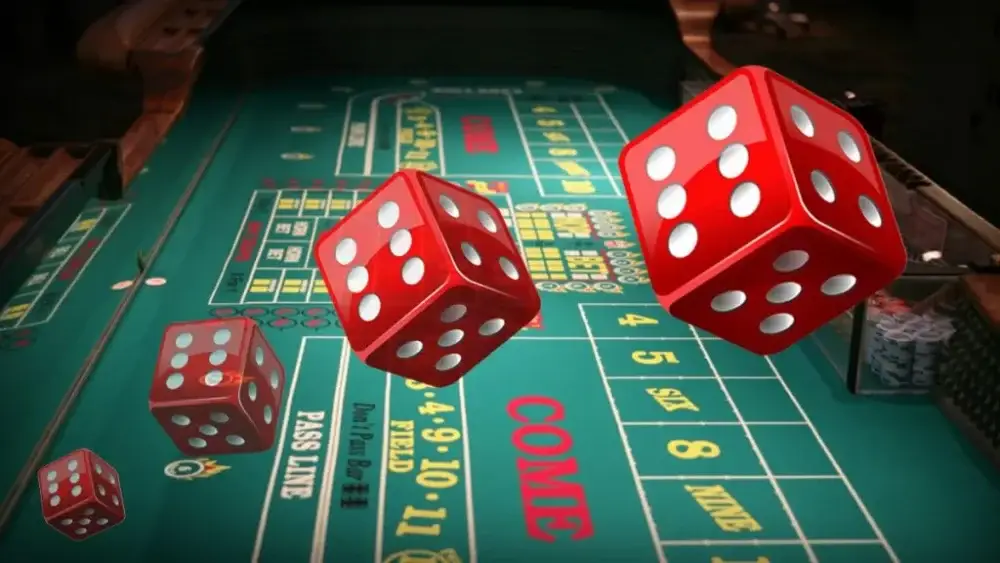The gameplay in craps evolves rapidly: one roll of the dice can change the outcome of the game. It is in this rhythm that the need arises to use different tactics and strategies in online casinos. Unlike classic card games, craps does not offer a moment for “reflection” — each action is taken in a second. Therefore, players choose between risky and conservative methods, relying on probability calculations, the rhythm of the table, the structure of bets, and the size of the bankroll.
Practice shows that winning streaks are often accompanied by sensible management of the pace of bets, rather than uncontrolled increase in risks. The focus on minimal house edge positions, such as Pass Line and Don’t Pass, forms the basic foundation on which the rest of the strategy is built. Many players track sequences of rolls, take into account “hot” and “cold” numbers, despite the fact that the random number generator eliminates patterns.
Tactics and strategies of playing in online casinos through disciplined betting
In practice, casino game strategies for craps are built on maintaining distance. The main task is not to predict the roll, but to maintain a balance between reasonable risk and winning potential. The conservative method “Come and Don’t Come” allows controlling the pace of the game: with the right placement of bets, the player creates symmetry — regardless of the outcome, part of the capital remains in circulation.
Players aiming for long-term profit combine basic bets with Odds Bet to neutralize the casino’s mathematical advantage. This allows increasing the expected return while maintaining a low level of risk. Such tactics and strategies in online casinos are considered basic, but in craps, they provide a stable result over a long distance. This is especially relevant with moderate volatility typical of line bets.
Algorithmic thinking: how to win in a casino using logic and calculation
Understanding the mathematics of dice rolling is at the core of the answer to how to win in a casino playing craps. The system revolves around a total of 36 possible combinations of two dice. The highest probability is for the sum of 7, which occurs in 6 out of 36 cases. This knowledge is used in strategy building: Pass Line, Odds, and Place Bets on 6 and 8 offer a higher RTP. Players avoid bets with high variance, such as Any Seven or Yo (11), despite their attractive odds. Practice shows that stability is needed to build a positive distance, not sharp spikes.
Risk control through tactics and strategies in online casinos
Many mistakenly believe that craps is purely a game of luck. However, in real winning cases, structural bet management often plays a role. The answer to how to beat the casino in craps lies in rational choice of positions with a low house edge, controlling the length of streaks, and discipline in bankroll management.
Experienced users combine Pass Line with Odds and Don’t Come insurance — this allows spreading risks, controlling volatility, and minimizing losses in case of deviations. Additionally, tactics and strategies in online casinos are applied based on adapting to the current series of rolls. Emotion-driven reactions are excluded: each step follows a predetermined logic.
Betting mechanics: from simple to complex
Bets in craps are divided into basic (Pass Line, Don’t Pass), advanced (Odds, Place Bets), and risky (Proposition Bets). The following types of calculations are used in practicing tactics and strategies in online casinos:
-
Probability of winning on Pass Line when 7 or 11 come out is about 22.22%.
-
Probability of losing when 2, 3, 12 come out is about 11.11%.
-
Odds bet on Pass Line returns the full win (1:1, 2:1, 3:2, etc. depending on the number).
-
Place Bets on 6 and 8 have a high RTP — around 98.5%, but require a fixed position and discipline.
-
Using Field and Proposition bets is only permissible with an ultra-conservative main strategy as a diversification element.
Martingale and Fibonacci Effect
Martingale and Fibonacci betting systems are regularly tested by players looking to quickly increase their winnings. However, the high volatility of craps makes their application risky. When it comes to tactics and strategies in online casinos, it is important to consider that:
-
Martingale requires an unlimited bankroll and easily fails in a series of losses.
-
Fibonacci is more moderate, but when betting on Don’t Pass or Place, it loses effectiveness due to moderate profitability.
Instead, it is wiser to use an adaptive betting system tied to the round structure. For example, when a “Point” is rolled on 6, one can Place on 8 and Lay on 10. This structure reduces overall risk while increasing the likelihood of at least one win in a series.
Role of emotions and psychological resilience in strategic gameplay
Players using tactics and strategies in online casinos face the need to suppress impulsive reactions. In craps, the danger lies in expecting a “payoff” after a losing streak. Emotional outbursts lead to unwarranted increase in bets, especially on risky positions. Successful players develop behavior scenarios for deviations. Profits are locked in through predefined goals, and losses are analyzed not as personal failures but as a result of probability. Additional modules from operators — journals, round analytics, reminders to take breaks — also enhance control.
Technical parameters: RTP, volatility, and random number generator
The effectiveness of tactics and strategies in online casinos depends on understanding the technical foundation. In craps, the following are applied:
-
RTP — return to player. On Pass Line, it reaches 98.6%, on Don’t Pass — up to 99.1%.
-
Volatility — average. Frequent small wins alternate with rare big wins.
-
Dispersion — above average. The balance between bets and results changes unevenly.
-
Random Number Generator (RNG) ensures complete unpredictability, excluding any patterns.
Understanding these parameters allows players to correctly choose bets, determine session duration, and apply strategies based on probabilities.
Legal aspects: operator license and player protection
Platforms offering craps games must adhere to standards. Any tactics and strategies in online casinos become meaningless without reliability. Therefore, attention to the license is critical. Among the verified jurisdictions are Malta (MGA), Curacao (CGC), and the United Kingdom (UKGC). Reliable operators publish RNG certification data, support personal data protection, and ensure fast verification. Such platforms provide players with control over the process, compliance with international standards, and transparent betting mechanics.
Conclusion
Successful tactics and strategies in online casinos when playing craps are built on three pillars: mathematical model, discipline, and choosing a reliable operator. Each step requires calculation, choice — logic, and a roll — composure. Craps reveals the potential of strategy only with sequence and adaptability. This is what makes it one of the deepest games in the world of gambling.
 en
en  de
de  ar
ar  es
es  hi
hi  fr
fr  nl
nl  ru
ru  it
it  pt
pt  el
el 









